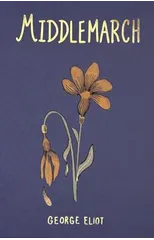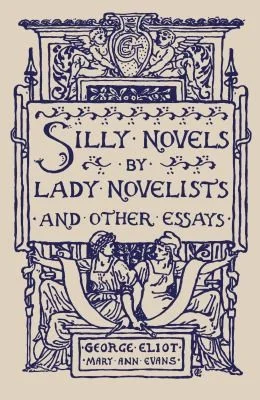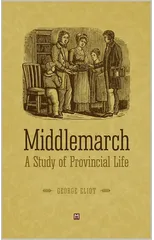Step into the rich tapestry of rural England with George Eliot's "Adam Bede," a timeless novel that weaves a compelling narrative of love, moral dilemmas, and social change. This literary masterpiece, first published in 1859, captures the complexities of human nature and the transformative power of compassion and integrity. Set in the early 19th century in the fictional village of Hayslope, "Adam Bede" centers around the lives of its vibrant and diverse inhabitants. The protagonist, Adam Bede, is a hardworking and honorable carpenter, whose steadfast nature and strong moral compass make him a respected figure in the community. Adam's love for the beautiful but vain dairymaid Hetty Sorrel drives much of the novel's emotional tension. Hetty, captivated by dreams of a more glamorous life, becomes entangled in a doomed affair with the charming but irresponsible squire, Arthur Donnithorne. Their relationship sets off a series of events that lead to heartbreak and tragedy, forcing Hetty to confront the harsh consequences of her actions. In contrast, Dinah Morris, a compassionate and devout Methodist preacher, embodies spiritual strength and selfless love, influencing the lives of those around her, including Adam. Eliot's masterful storytelling delves into themes of moral integrity, social justice, and the redeeming power of love and forgiveness. The novel's intricate characterizations and vivid descriptions bring to life the pastoral beauty and social dynamics of rural England, offering a nuanced exploration of the human condition. "Adam Bede" is not just a tale of personal struggles and romantic entanglements-it's a profound commentary on the societal and ethical issues of its time. Eliot's keen insight into human behavior, coupled with her eloquent prose and deep empathy for her characters, makes this novel a richly rewarding read. Join George Eliot on a journey through the heart and soul of rural England with "Adam Bede." With its unforgettable characters, poignant themes, and beautifully crafted narrative, this novel remains a cornerstone of English literature, inviting readers to reflect on the enduring values of compassion, integrity, and resilience.
George Eliot
George Eliot was the pen name of Mary Ann Evans, a prominent Victorian-era novelist known for her insightful and complex characterizations. Her most notable works include "Middlemarch," considered one of the greatest novels in the English language, and "Silas Marner," a poignant tale of redemption and community. Eliot's literary style is characterized by its psychological depth, moral complexity, and social commentary. She was a pioneer in the realist tradition, exploring themes of morality, religion, and human relationships in her writing. Eliot's contributions to literature include challenging traditional gender roles and societal norms, as well as expanding the scope and depth of the novel as an art form. Her work continues to be celebrated for its profound insights into the human condition and its enduring relevance in contemporary society.












